The 100 Outstanding Journalists in the United States in the Last 100 Years
In March 2012, the faculty at the Arthur L. Carter Journalism Institute at New York University, together with an Honorary Committee of alumni, selected “the 100 Outstanding Journalists in the United States in the Last 100 Years.” The list was selected from more than 300 nominees plus write-ins and was announced at a reception in honor of the 100th anniversary of journalism education at NYU on April 3, 2012.
– Mitchell Stephens, Professor of Journalism, NYU
 James Agee: a journalist, critic, poet, screenwriter and novelist who wrote the text for Let Us Now Praise Famous Men, a celebration of depression-era sharecropper families.
James Agee: a journalist, critic, poet, screenwriter and novelist who wrote the text for Let Us Now Praise Famous Men, a celebration of depression-era sharecropper families.
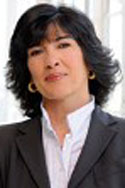
Christiane Amanpour: long-time and distinguished international reporter for CNN; now also works for ABC News.
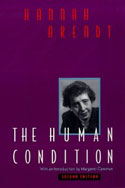
Hannah Arendt: a political thinker, author of The Origins of Totalitarianism, who reported the Eichmann trial for the New Yorker; those articles were turned into the book Eichmann in Jerusalem: A Report on the Banality of Evil in 1963.
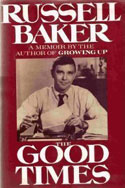
Russell Baker: a Pulitzer Prize-winning writer and humorist who wrote the popular “Observer” column in the New York Times from 1962 to 1998.
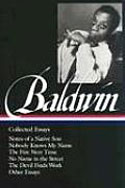
James Baldwin: an essayist, journalist and novelist whose finely written essays, including “Notes of a Native Son,” “Nobody Knows My Name” and The Fire Next Time, made a significant contribution to the civil-rights movement.
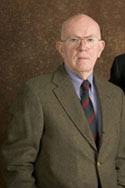
Donald L. Barlett: an investigative journalist who, along with his colleague James B. Steele, won two Pulitzer Prizes and multiple other awards for his powerful investigative series from the 1970s through the 1990s at the Philadelphia Inquirer and later at Time magazine.
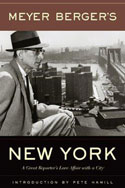
Meyer Berger: a fine columnist and feature writer for the New York Times, where he worked, except for a short stretch at the New Yorker, from 1928 to 1959; Berger won the Pulitzer Prize for his report on the murderer Howard Unruh.
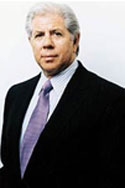
Carl Bernstein: while a young reporter at the Washington Post in the early 1970s broke the Watergate scandal along with Bob Woodward.
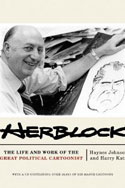
Herbert Block (Herblock): a clever and creative Washington editorial cartoonist who coined the term ‘McCarthyism’ and worked for the Washington Post for 55 years, until his death in 2001.
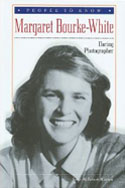
Margaret Bourke-White: a photographer who was among the first women to report on wars and whose pictures appeared on the cover of Life magazine, beginning in 1936.
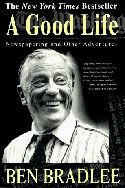
Ben Bradlee: executive editor at the Washington Post from 1968 to 1991, who supervised the papers revelatory investigation of the Watergate Scandel.
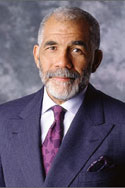
Ed Bradley: a reporter who covered the Vietnam War, the 1976 presidential race, and the White House at CBS and who was a correspondent on 60 Minutes for 26 years.
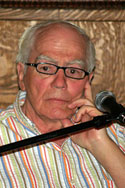
Jimmy Breslin: street-wise, storytelling, Pulitzer-Prize-winning New York City columnist for the city’s tabloids over many decades in the second half of the twentieth century and into the twenty-first.
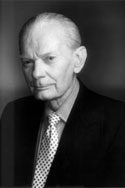
David Brinkley: co-anchor of the top-rated Huntley-Brinkley Report on NBC from 1956 to 1970, which he followed by a distinguished career as an anchor and commentator at NBC and ABC News.
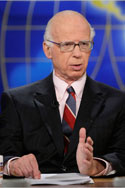
David Broder: influential Pulitzer Prize-winning political reporter and columnist, who joined the Washington Post in 1968.
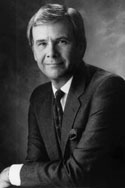
Tom Brokaw: anchored NBC’s Nightly News and the network’s special-events coverage, including elections and September 11, from 1982 to 2004.
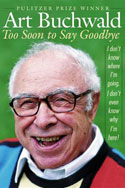
Art Buchwald: a Pulitzer Prize-winning satirist whose humor column, which began in the International Herald Tribune in 1949, was eventually syndicated to more than 550 newspapers.
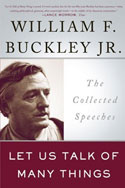
William F. Buckley, Jr.: editor, columnist, author, and TV host who founded the National Review in 1955.
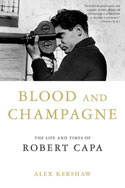
Robert Capa: a photographer who documented major historic events including the D-Day landings and the Spanish Civil War; Capa became an American citizen in 1946.
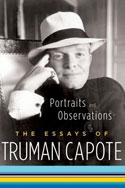
Truman Capote: a novelist whose exhaustively reported and lyrically written 1965 “nonfiction novel,” In Cold Blood, was one of the most respected works of “new journalism.”
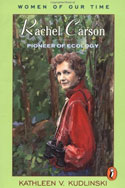
Rachel Carson: a science writer whose 1962 book Silent Spring called attention to the dangers of pesticides and helped inspire the environmental movement.
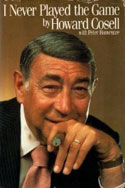
Howard Cosell: an aggressive, even abrasive, sports broadcaster, Cosell was one of the first Monday Night Football announcers in 1970 and was on the show until 1983; he was known for his unvarnished commentary and sympathetic reporting on Muhammad Ali.
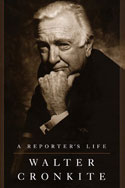
Walter Cronkite: a reporter who became the best known and perhaps most respected American television journalist of his time as the anchor of the CBS Evening News from 1962 to 1981.
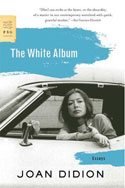
Joan Didion: a literary journalist, novelist and memoirist, who helped invent “new journalism” in the 1960s and whose judgmental but superbly written articles have become standard texts in many journalism departments.
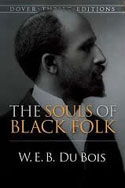
W.E.B. Du Bois: a sociologist, civil rights activist, editor, and journalist who is best-known for his collection of articles, The Souls of Black Folk, and for his columns on race during his tenure as editor of The Crisis, 1910–1934.
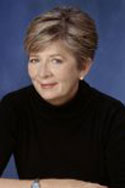
Barbara Ehrenreich: a journalist and political activist who authored 21 books, including Nickel and Dimed, published in 2001, an expose of the living and working conditions of the working poor.
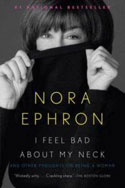
Nora Ephron: a columnist, humorist, screenwriter and director, who wrote clever and incisive social and cultural commentary for Esquire and other publications beginning in the 1960s.
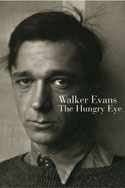
Walker Evans: a photographer who reported Let Us Now Praise Famous Men along with James Agee and earned acclaim for documenting of the faces of the Great Depression.
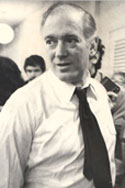 Clay Felker: with Milton Glaser in 1968 launched New York magazine, which he had edited when it was a supplement to the Herald Tribune, and helped invent what became the most widely imitated style of magazine journalism in the late twentieth century and beyond.
Clay Felker: with Milton Glaser in 1968 launched New York magazine, which he had edited when it was a supplement to the Herald Tribune, and helped invent what became the most widely imitated style of magazine journalism in the late twentieth century and beyond.
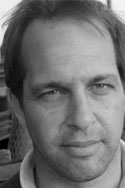 Dexter Filkins: a wartime reporter and author who writes for the New Yorker, Filkins won the Pulitzer Prize in 2009 along with several other New York Times journalists for reports from Pakistan and Afghanistan.
Dexter Filkins: a wartime reporter and author who writes for the New Yorker, Filkins won the Pulitzer Prize in 2009 along with several other New York Times journalists for reports from Pakistan and Afghanistan.
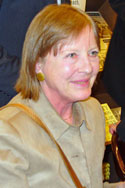 Frances FitzGerald: a Pulitzer Prize-winning journalist who went to Saigon in 1966 and in 1972, published one of the most influential critiques of the war, Fire in the Lake: The Vietnamese and the Americans in Vietnam.
Frances FitzGerald: a Pulitzer Prize-winning journalist who went to Saigon in 1966 and in 1972, published one of the most influential critiques of the war, Fire in the Lake: The Vietnamese and the Americans in Vietnam.
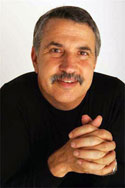 Thomas Friedman: a Pulitzer Prize-winning reporter, columnist and author, Friedman began writing his column on foreign affairs, economics and the environment for the New York Times in 1995.
Thomas Friedman: a Pulitzer Prize-winning reporter, columnist and author, Friedman began writing his column on foreign affairs, economics and the environment for the New York Times in 1995.
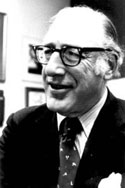 Fred Friendly: president of CBS News in the mid-1960s and the co-creator of the television program “See It Now”; produced an investigation of Sen. Joseph McCarthy and the renowned 1960 documentary “Harvest of Shame.”
Fred Friendly: president of CBS News in the mid-1960s and the co-creator of the television program “See It Now”; produced an investigation of Sen. Joseph McCarthy and the renowned 1960 documentary “Harvest of Shame.”
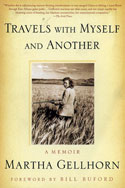 Martha Gellhorn: a World War II correspondent whose articles were collected in The Face of War; she also covered the Vietnam War and the Six Day War in the Middle East.
Martha Gellhorn: a World War II correspondent whose articles were collected in The Face of War; she also covered the Vietnam War and the Six Day War in the Middle East.
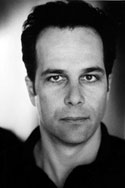 Philip Gourevitch: a staff writer for the New Yorker, reported on the Rwanda genocide in his 1998 book We Wish To Inform You That Tomorrow We Will Be Killed With Our Families.
Philip Gourevitch: a staff writer for the New Yorker, reported on the Rwanda genocide in his 1998 book We Wish To Inform You That Tomorrow We Will Be Killed With Our Families.
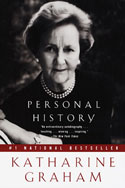
Katharine Graham: a publisher who took over the Washington Post after her husband’s suicide in 1963, she resisted White House pressure during the paper’s printing of the Pentagon Papers and the Watergate investigation; her memoir won the Pulitzer Prize in 1998.
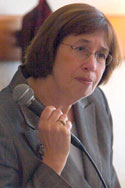 Linda Greenhouse: a Pulitzer Prize-winning reporter who covered the US Supreme Court for the New York Times for more than 25 years, beginning in 1978.
Linda Greenhouse: a Pulitzer Prize-winning reporter who covered the US Supreme Court for the New York Times for more than 25 years, beginning in 1978.
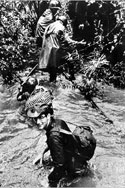 David Halberstam: a Pulitzer Prize-winning journalist and author, known for his coverage of Vietnam, the civil rights movement, politics, and sports.
David Halberstam: a Pulitzer Prize-winning journalist and author, known for his coverage of Vietnam, the civil rights movement, politics, and sports.
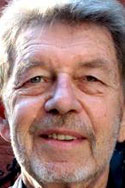 Pete Hamill: reporter, columnist, editor, memoirist and novelist who, beginning with a job as a reporter at the New York Post in 1960, reported, edited or wrote for most of New York City’s newspapers and many magazines.
Pete Hamill: reporter, columnist, editor, memoirist and novelist who, beginning with a job as a reporter at the New York Post in 1960, reported, edited or wrote for most of New York City’s newspapers and many magazines.
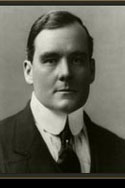 Richard Harding Davis: journalist and fiction writer, whose powerfully written reports on major events, such as the Spanish-American War and the First World War, made him one of the best-known journalists of his time.
Richard Harding Davis: journalist and fiction writer, whose powerfully written reports on major events, such as the Spanish-American War and the First World War, made him one of the best-known journalists of his time.
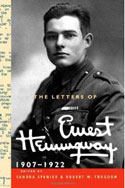 Ernest Hemingway: a Nobel-Prize-winning novelist and journalist, who reported on Europe during war and peace for a variety of North American publications.
Ernest Hemingway: a Nobel-Prize-winning novelist and journalist, who reported on Europe during war and peace for a variety of North American publications.
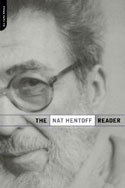 Nat Hentoff: who with his Village Voice column, which began in 1957, crusaded, even against some liberal orthodoxies, for civil liberties.
Nat Hentoff: who with his Village Voice column, which began in 1957, crusaded, even against some liberal orthodoxies, for civil liberties.
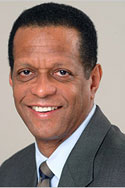 Bob Herbert: who wrote a column for the New York Times from 1993 to 2011 that dealt with poverty, racism, the Iraq War, and politics.
Bob Herbert: who wrote a column for the New York Times from 1993 to 2011 that dealt with poverty, racism, the Iraq War, and politics.
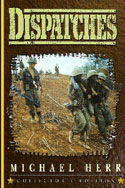 Michael Herr: who covered the Vietnam War with unprecedented rawness and cynicism for Esquire and wrote the book Dispatches, a partially fictionalized account of his experiences in Vietnam.
Michael Herr: who covered the Vietnam War with unprecedented rawness and cynicism for Esquire and wrote the book Dispatches, a partially fictionalized account of his experiences in Vietnam.
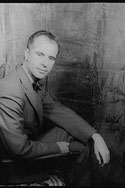 John Hersey: a journalist and novelist whose thoroughly reported and tightly written account of the consequences of the atomic bomb America dropped on Hiroshima filled an entire issue of the New Yorker in 1946 and became one of the most read books in America in the second half of the twentieth century.
John Hersey: a journalist and novelist whose thoroughly reported and tightly written account of the consequences of the atomic bomb America dropped on Hiroshima filled an entire issue of the New Yorker in 1946 and became one of the most read books in America in the second half of the twentieth century.
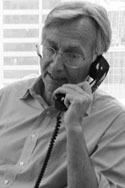 Seymour Hersh: a long-time investigative reporter, specializing is national security issues, who earned acclaim for his Pulitzer Prize-winning coverage of the massacre by American soldiers at My Lai in Vietnam in 1968, as well as his 2004 reports about American mistreatment of detainees at Abu Ghraib.
Seymour Hersh: a long-time investigative reporter, specializing is national security issues, who earned acclaim for his Pulitzer Prize-winning coverage of the massacre by American soldiers at My Lai in Vietnam in 1968, as well as his 2004 reports about American mistreatment of detainees at Abu Ghraib.
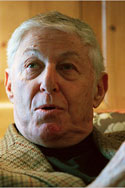 Don Hewitt: a television news producer who helped invent the evening news on CBS, produced the first televised presidential debate in 1960, extended the CBS Evening News from 15 to 30 minutes in 1963, and later introduced and served as the long-time executive producer of 60 Minutes.
Don Hewitt: a television news producer who helped invent the evening news on CBS, produced the first televised presidential debate in 1960, extended the CBS Evening News from 15 to 30 minutes in 1963, and later introduced and served as the long-time executive producer of 60 Minutes.
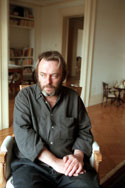 Christopher Hitchens: a prolific journalist with a large vocabulary and no fear of controversy, who wrote many widely discussed books and wrote columns for the Nation and Vanity Fair.
Christopher Hitchens: a prolific journalist with a large vocabulary and no fear of controversy, who wrote many widely discussed books and wrote columns for the Nation and Vanity Fair.
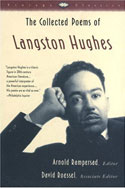 Langston Hughes: a poet and playwright, Hughes also wrote a weekly column for the Chicago Defender from 1942 to 1962.
Langston Hughes: a poet and playwright, Hughes also wrote a weekly column for the Chicago Defender from 1942 to 1962.
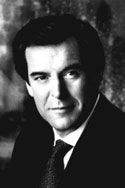 Peter Jennings: a long-time ABC television reporter, he anchored World News Tonight from 1983 until his death in 2005.
Peter Jennings: a long-time ABC television reporter, he anchored World News Tonight from 1983 until his death in 2005.
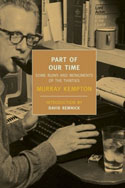 Murray Kempton: a Pulitizer-Prize-winning journalist whose long, stately sentences and short tolerance for pretense made him one of New York’s most revered columnists and reporters; he wrote for the New York Post, the New York Review of Books, and, beginning in 1981, for Newsday.
Murray Kempton: a Pulitizer-Prize-winning journalist whose long, stately sentences and short tolerance for pretense made him one of New York’s most revered columnists and reporters; he wrote for the New York Post, the New York Review of Books, and, beginning in 1981, for Newsday.
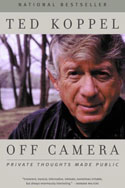 Ted Koppel: a television reporter and anchor who started a late-night news show in 1979 that eventually became Nightline.
Ted Koppel: a television reporter and anchor who started a late-night news show in 1979 that eventually became Nightline.
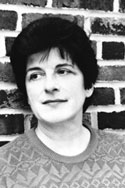 Jane Kramer: a staff writer for the New Yorker since 1964, writing mostly from Europe.
Jane Kramer: a staff writer for the New Yorker since 1964, writing mostly from Europe.
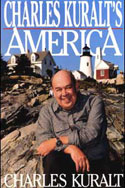 Charles Kuralt: Kuralt reported “On the Road” features for the CBS Evening News beginning in 1967 and later anchored CBS News Sunday Morning.
Charles Kuralt: Kuralt reported “On the Road” features for the CBS Evening News beginning in 1967 and later anchored CBS News Sunday Morning.
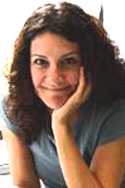 Adrian Nicole LeBlanc: author of Random Family, the acclaimed non-fiction book published in 2002 about the relations of drug dealers in the South Bronx.
Adrian Nicole LeBlanc: author of Random Family, the acclaimed non-fiction book published in 2002 about the relations of drug dealers in the South Bronx.
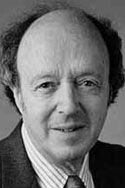 Anthony Lewis: a Pulitzer Prize-winning journalist and a columnist for the New York Times from 1969 to 2001.
Anthony Lewis: a Pulitzer Prize-winning journalist and a columnist for the New York Times from 1969 to 2001.
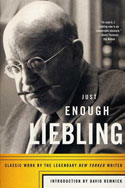 A. J. Liebling: a New Yorker correspondent beginning in 1935 and an early press critic whose article collections include the acclaimed The Road Back to Paris and The Wayward Pressman.
A. J. Liebling: a New Yorker correspondent beginning in 1935 and an early press critic whose article collections include the acclaimed The Road Back to Paris and The Wayward Pressman.
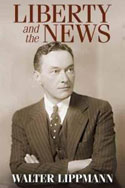 Walter Lippmann: an intellectual, journalist and writer who was one of the founding editors of the New Republic magazine in 1914 and a long-time newspaper columnist.
Walter Lippmann: an intellectual, journalist and writer who was one of the founding editors of the New Republic magazine in 1914 and a long-time newspaper columnist.
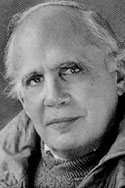 J. Anthony Lukas: a Pulitzer Prize-winning journalist, best known for his book on school integration in Boston: Common Ground: A Turbulent Decade in the Lives of Three American Families.
J. Anthony Lukas: a Pulitzer Prize-winning journalist, best known for his book on school integration in Boston: Common Ground: A Turbulent Decade in the Lives of Three American Families.
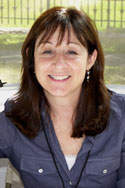
Jane Mayer: an investigative reporter who has been a staff writer for the New Yorker since 1968; her 2008 book The Dark Side exposed the Bush administration’s more questionable tactics in the war on terror.
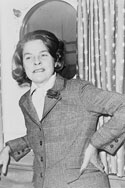
Mary McCarthy: a novelist and critic, McCarthy’s essays appeared in publications like the Partisan Review, the Nation, the New Republic, Harper’s, and the New York Review of Books from the 1940s through the 1970s
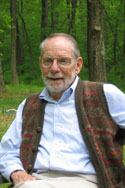
John McPhee: a staff writer for the New Yorker since 1965, his detailed, discursive portraits – often explaining some aspect of the earth or its inhabitants – helped expand the range of journalism.
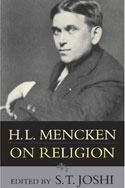
H. L. Mencken: a tough, judgmental, impeccably literate and hugely influential journalist, cultural critic, essayist, satirist and editor, he reported on the 1925 Scopes “Monkey” trial.
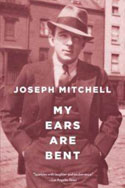
Joseph Mitchell: a staff writer for the New Yorker from 1938 until his death in 1996, who won acclaim for his off-beat profiles, collected in the book Up in the Old Hotel and Other Stories.
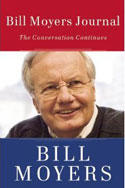
Bill Moyers: an award-winning public-broadcasting journalist since 1971 and former White House press secretary under Lyndon Johnson, who also worked as the publisher of Newsday and senior analyst for the CBS Evening News with Dan Rather.
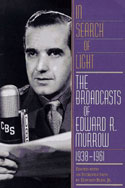
Edward R. Murrow: an influential television and radio journalist who covered the bombing of London, the liberation of Buchenwald, and helped expose Sen. Joseph McCarthy and, in the 1960 documentary “Harvest of Shame,” the plight of American farm workers.
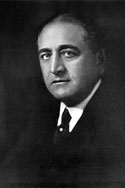
Adolph Ochs: the New York Times, when he purchased it in 1896, had a circulation of about 9,000; by 1921 Ochs’ paper, increasingly known for its nonpartisan reporting, had a staff of 1,885 and a circulation of 780,000.
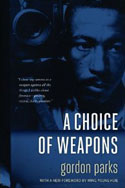
Gordon Parks: an activist, writer, and photojournalist, Parks became the first African-American photographer for Life in 1948.
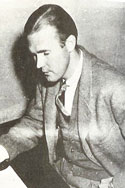
George Polk: a journalist and radio broadcaster for CBS who insisted on finding his own information, Polk was killed while covering the Greek Civil War in 1948; his colleagues established an award in his name.
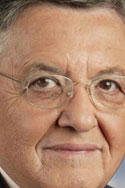
Gabe Pressman: a senior correspondent at WNBC-TV, he helped pioneer local television journalism and has been a New York City reporter for over 60 years.
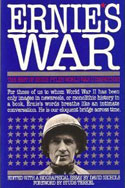
Ernie Pyle: renowned wartime journalist whose folksy, poetic, GI-centered reports from Europe and the Pacific during World War II earned him the 1944 Pulitzer Prize; Pyle was killed while covering the end of the war.
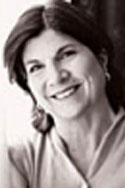
Anna Quindlen: a novelist, journalist and columnist, her path-breaking New York Times column “Public and Private,” won the Pulitzer Prize for Commentary in 1992.
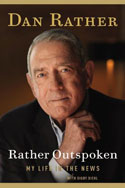
Dan Rather: a journalist who covered the Kennedy assassination and the Nixon White House for CBS and was the longest serving anchor of an American network newscast, the CBS Evening News, from 1981 to 2005.
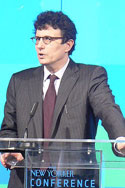
David Remnick: Remnick, a former Washington Post reporter, won the Pulitzer Prize for his book Lenin’s Tomb: The Last Days of the Soviet Empire and in 1998 became the editor of the New Yorker, for which he also writes and reports.
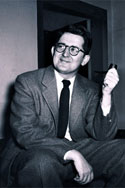
A. M. Rosenthal: a Pulitzer-Prize winning reporter, then the commanding executive editor of the New York Times from 1977 to 1986 – a period of growth and transition; later a columnist.
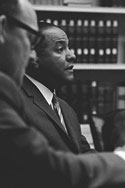
Carl Rowan: the first nationally syndicated African-American columnist; he wrote his column, based at the Chicago Sun-Times, from 1966 to 1998.
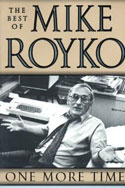
Mike Royko: a Pulitzer Prize-winning Chicago columnist since the early 1960s and author of an unauthorized biography of Mayor Richard J. Daley, Boss.
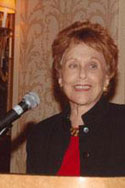
Marlene Sanders: the first female television correspondent in Vietnam, the first female anchor on a US network television evening newscast and the first female vice president of ABC News.
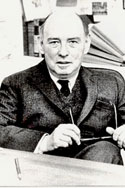
William Shawn: an editor who worked at the New Yorker for 53 years and ran it for 35 years, beginning in 1952; he is given much of the credit for establishing the magazine’s tradition of excellence in long-form journalism.
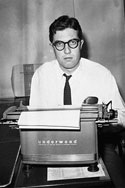
Neil Sheehan: covered Vietnam for UPI, obtained the Pentagon Papers in 1971 for the New York Times from Daniel Ellsberg and won the Pulitzer Prize for his book examining the failure of US policy in Vietnam: A Bright Shining Lie: John Paul Vann and America in Vietnam.
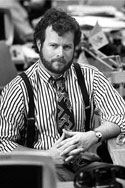
Randy Shilts: one of the first openly gay mainstream journalists; devoted himself to covering the AIDS epidemic in the 1980s for the San Francisco Chronicle; his book examining that epidemic, And the Band Played On, was published in 1987; Shilts died of AIDS at the age of 42 in 1994.
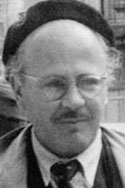
William Shirer: a wartime correspondent and radio broadcaster who wrote Berlin Diary: The Journal of a Foreign Correspondent, 1939–1941.
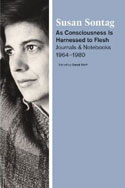
Susan Sontag: an essayist, novelist and preeminent intellectual, among her many influential writings was “Notes on ‘Camp,’” published in 1964; a human-rights activist, she wrote about the plight of Bosnia for the Nation in 1995 and even moved to Sarajevo to call further attention to that plight.
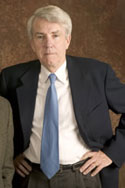
James B. Steele: an investigative journalist who, along with his colleague Donald L. Barlett, won two Pulitzer Prizes and multiple other awards for his investigative series from the 1970s through the 1990s at the Philadelphia Inquirer and later at Time magazine.
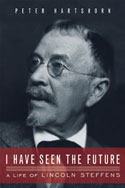
Lincoln Steffens: while Shame of the Cities was published, in book form, in 1904 – more than 100 years ago – Steffens career as an influential journalist certainly continued, and included an interview with Lenin after the revolution and reporting from Mussolini’s Italy.
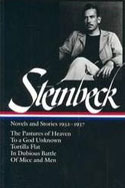
John Steinbeck: a Nobel-Prize-winning novelist and journalist who exposed the hardships of Okie migrant camp life in the San Francisco News in 1936, covered World War II and wrote newspaper columns in the 1950s.
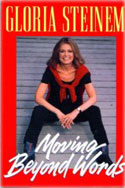
Gloria Steinem: a social activist and writer, Steinem co-founded the women’s magazine Ms. in 1972.
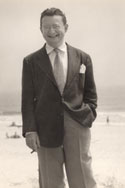
I. F. Stone: an investigative journalist who published his own newsletter, I. F. Stone’s Weekly, from 1953 to 1967.
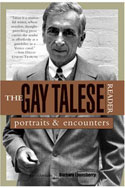
Gay Talese: a literary journalist; author of the renowned 1966 Esquire profile, “Frank Sinatra Has a Cold” and of many thoroughly reported, gracefully written books.
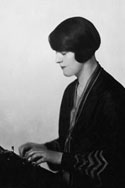
Dorothy Thompson: her reporting on Hitler and the rise of Nazism led to her being expelled from Germany in 1934; also a widely syndicated newspaper columnist, a rare female voice in radio news in the 1930s and the “second most influential woman in America,” after Eleanor Roosevelt, according to Time magazine in 1939.
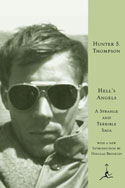
Hunter S. Thompson: created the uninhibited, self-parodying ‘gonzo’ style of journalism in the 1960s and 1970s, covered the 1972 presidential campaign for Rolling Stone, and wrote the book Fear and Loathing in Las Vegas.
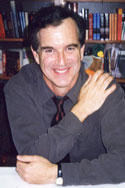
Garry Trudeau: the creator of the Doonesbury cartoon, in 1975 he became the first person to win a Pulitzer Prize for a comic strip.
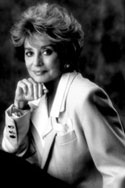
Barbara Walters: a journalist, known for her interviewing skills, and host of many influential ABC programs, including the ABC Evening News and 20/20.
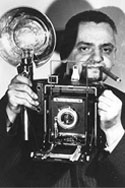
“Weegee”: the pseudonym of Arthur Fellig a prominent photojournalist who focused on New York’s Lower East Side in the 1930s and 1940s.
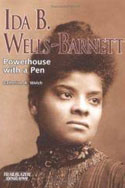
Ida B. Wells: prominent civil rights activist whose 1892 editorial on the lynching of three black men earned her popularity; she wrote her autobiography Crusade for Justice in 1928.
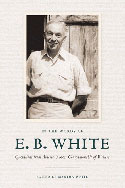
E. B. White: the author of the popular children’s books Charlotte’s Web and Stuart Little, and the co-author of The Elements of Style, White contributed to the New Yorker for about six decades, beginning in 1925.
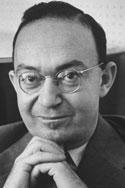
Theodore White: a political journalist and historian who pioneered behind-the-scenes campaign reporting in his book The Making of the President: 1960, the first of many in the series.
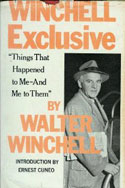
Walter Winchell: a powerful and widely read newspaper gossip columnist who also had the top-rated radio show in 1948.
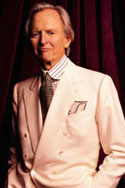
Tom Wolfe: a popular journalist and novelist who helped invent “new journalism” in the 1960s and 1970s with his well reported and kinetically written articles and books, including The Electric Kool-Aid Acid Test and The Right Stuff.
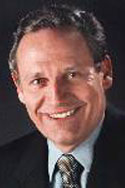
Bob Woodward: a reporter and editor at the Washington Post whose investigative articles with Carl Bernstein’s helped break the Watergate scandal in the early 1970s; Woodward went on to write a series of book detailing the inner workings of Washington.